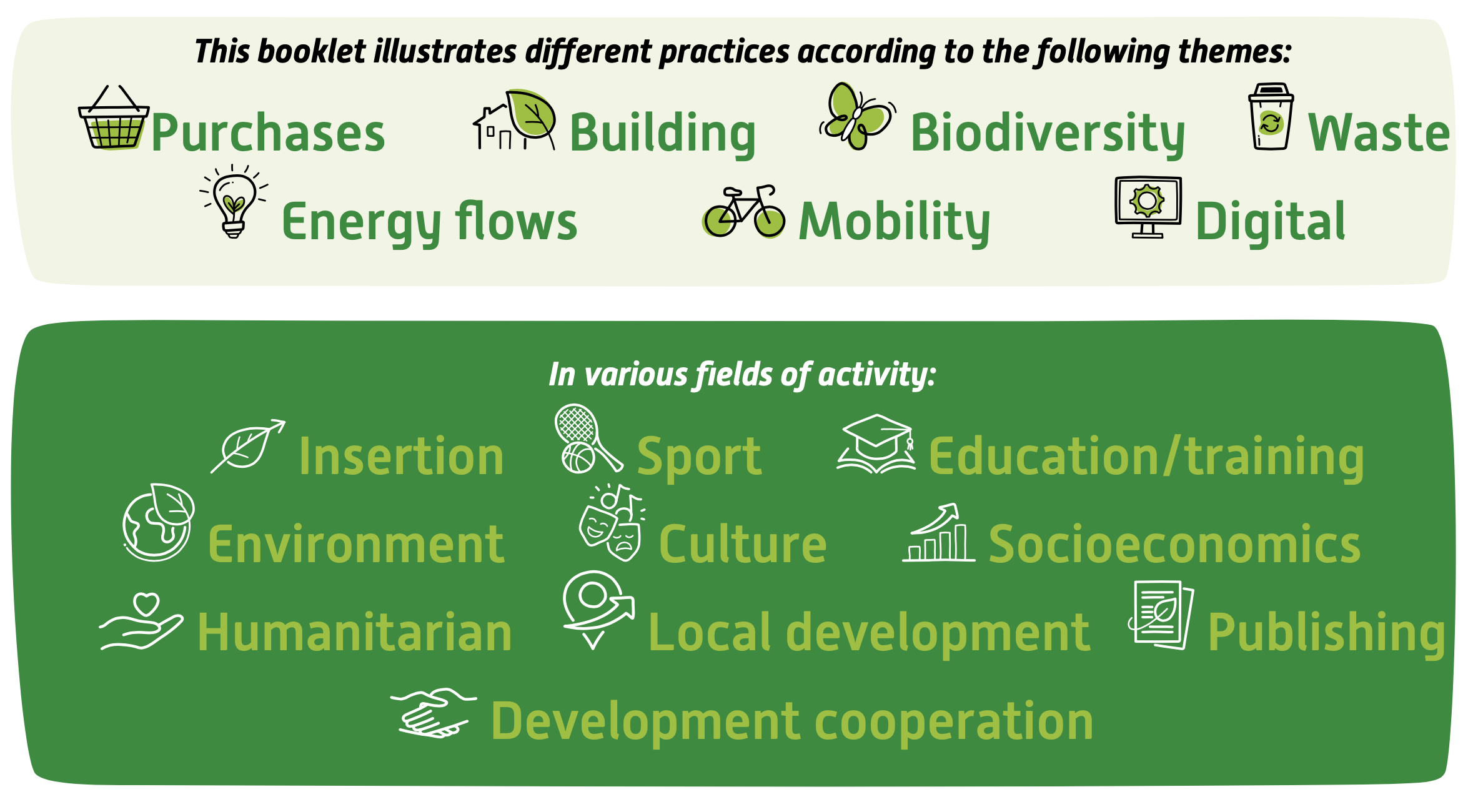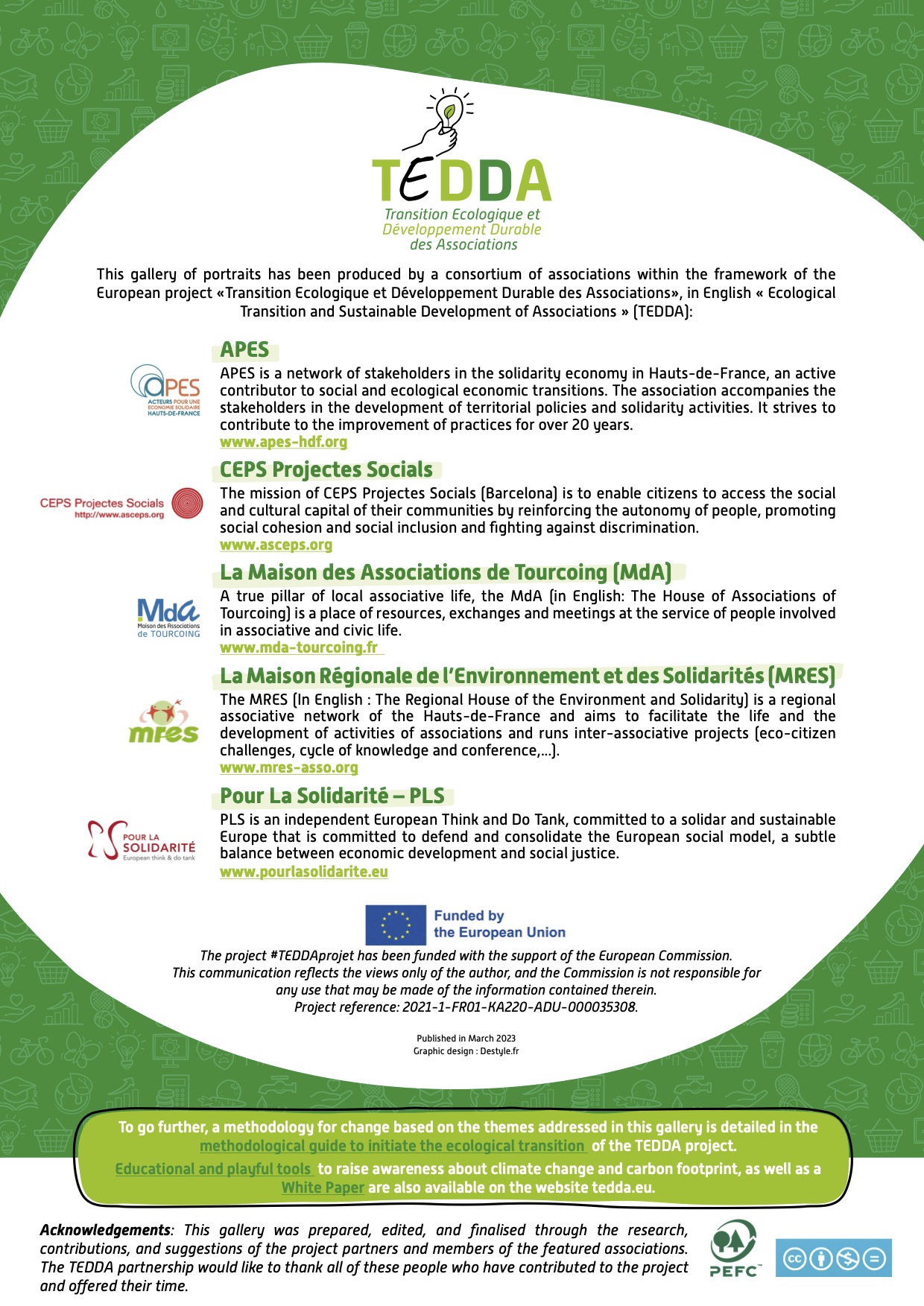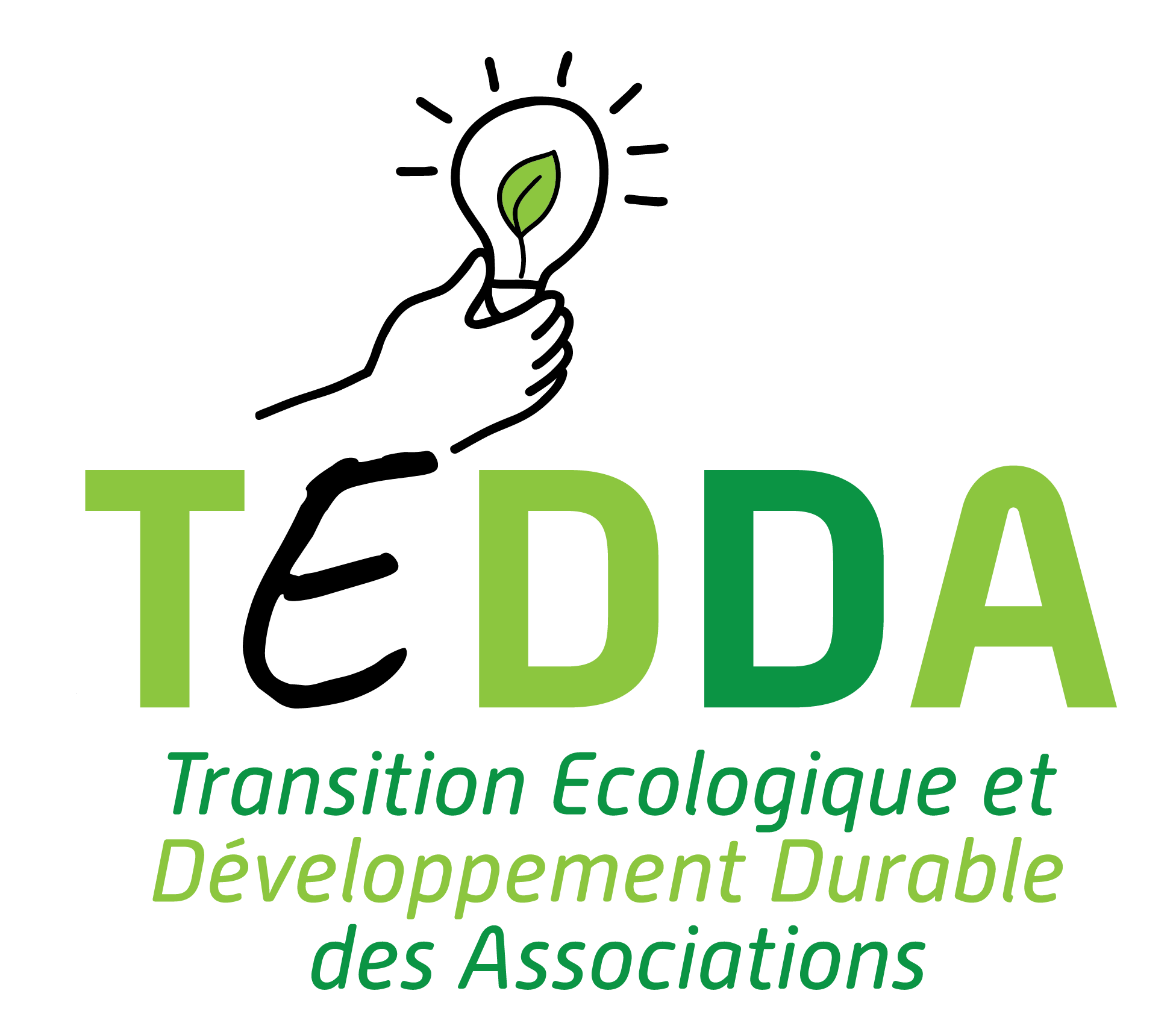
Editorial
In view of global warming and the depletion of resources, the ecological transition aims to change the production and consumption patterns and to find organizational and economic models that are more respectful of the environment, while guaranteeing an acceptable social base and a shared governance.
In March 2020, a group of structures active in supporting associative projects shared these observations and identified many associations that were keen to act but expressed a need for information, benchmarks or support to take action.
This collective composed of ‘Association pour une économie solidaire’ (Apes – France), ‘Associacio per a la Creacio i Estudis de Projectes Socials’ (CEPS – Spain), ‘Maison des associations de Tourcoing’ (MdA – France), ‘Maison Régionale de l’Environnement et des Solidarités HdF’ (MRES – France) and ‘Pour la Solidarité’ (PLS – Belgium), committed itself to the project ‘Transition Écologique et Développement Durable des Associations’ (TEDDA).
This European project, funded by Erasmus Plus, is aimed at small associations that wish to take action to improve their environmental practices and durably reduce the carbon footprint of their activities.
Four educational and complementary resources are developed in the context of this project:
A gallery of portrait of inspiring role models of associative structures that have developed concrete and innovative proposals;
Educational and playful tools to raise awareness about climate change and the ecological emergency, and to encourage the wish to act;
A methodological guide for self-diagnosis and the implementation of tangible changes;
A White Paper in order to deliver a common European message in favor of the ecological transition of small and medium-sized organizations.

This gallery of portraits highlights concrete proposals from small associations to reduce the ecological footprint of their daily operations. It contains initiatives of associations working in various fields such as sport, culture, popular education, environment, etc. that can be inspiring and replicated.
The associations testify about the levers and obstacles they have encountered as well as the management and measures of the changes in their practices.





